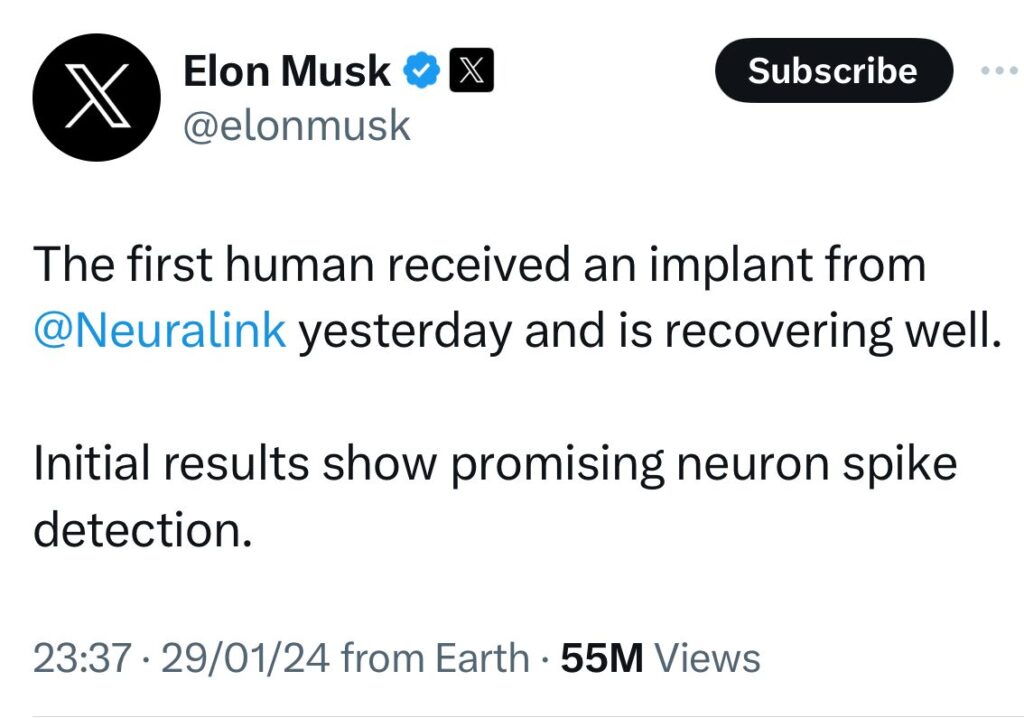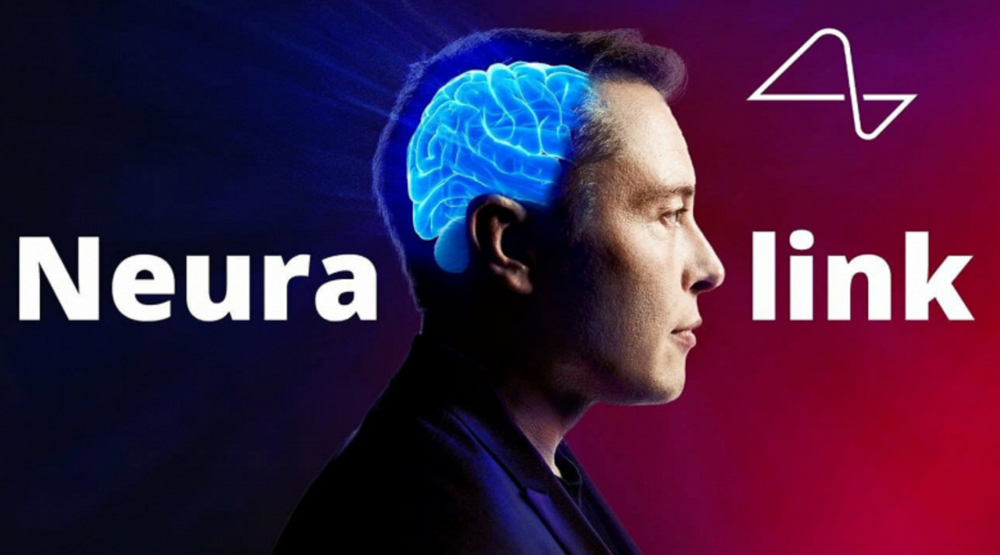In a groundbreaking development that merges the realms of technology and neuroscience, Elon Musk’s Neuralink has achieved a major milestone by successfully implanting its first brain chip in a human. The announcement, made by Musk himself in a post on X, marks a significant leap forward in the ambitious quest to develop brain-machine interfaces that could revolutionize the way we interact with technology and potentially address neurological disorders.
A brain-machine interface called Telepathy
Neuralink’s brain-machine interface, called “Telepathy,” aims to bridge the gap between the human brain and artificial intelligence, enabling seamless communication and integration. Musk emphasized the potential applications of this technology, ranging from restoring movement to paralyzed individuals to enabling direct interfacing with computers and other smart devices.
“Initial results show promising neuron spike detection,” Musk said in the post on X published on 29 January 2024. The word “spikes” refers to the neurochemical activities of the neurons which bring information in the brain and throughout the body.
To perform its trial, Neuralink uses a robot that surgically places the brain-computer interface (BCI) implant in the region of the brain that controls the intention to move, with the initial clinical goal of enabling people to control a computer cursor or keyboard only with their thoughts.

Promising applications
While the successful implantation of the brain chip is a major achievement, Neuralink acknowledges that there is still much work to be done. The U.S. Food and Drug Administration gave the clearance to perform the first trial of the implant on humans in September 2023 and the company is actively conducting research and refining the technology to address potential challenges and ensure long-term safety and efficacy.
However, despite the difficulties, prospects appear to be promising, as pointed out by Musk himself in a later post on X: ”It enables control of your phone or computer, and through them almost any device, just by thinking. Initial users will be those who have lost the use of their limbs. Imagine if Stephen Hawking could communicate faster than a speed typist or auctioneer. That is the goal.”
The company’s clinical ambition is to help patients overcome paralysis and neurological conditions.
Future fierce debate
The news has ignited discussions about the ethical implications and societal impact of brain-machine interfaces. Privacy concerns, security measures, and the potential for cognitive enhancement are among the topics being debated in both scientific and ethical circles. Furthermore, the device seems to usher in an epoch in which even human nature will probably need to be redefined, in the light of new possibilities as well as dangers that open up for humanity in the near future.
Pioneering work
Neuralink’s breakthrough comes at a time when interest in neurotechnology is growing, with several research initiatives exploring the possibilities of brain-machine interfaces and new avenues for collaboration and research in the broader field of neuroengineering.
As Neuralink continues its pioneering work, the world eagerly awaits further updates and insights into the potential applications and implications of brain-machine interfaces. Elon Musk’s venture into the realm of neurotechnology represents a bold step toward a future where the boundaries between the human brain and artificial intelligence are seamlessly blurred.




